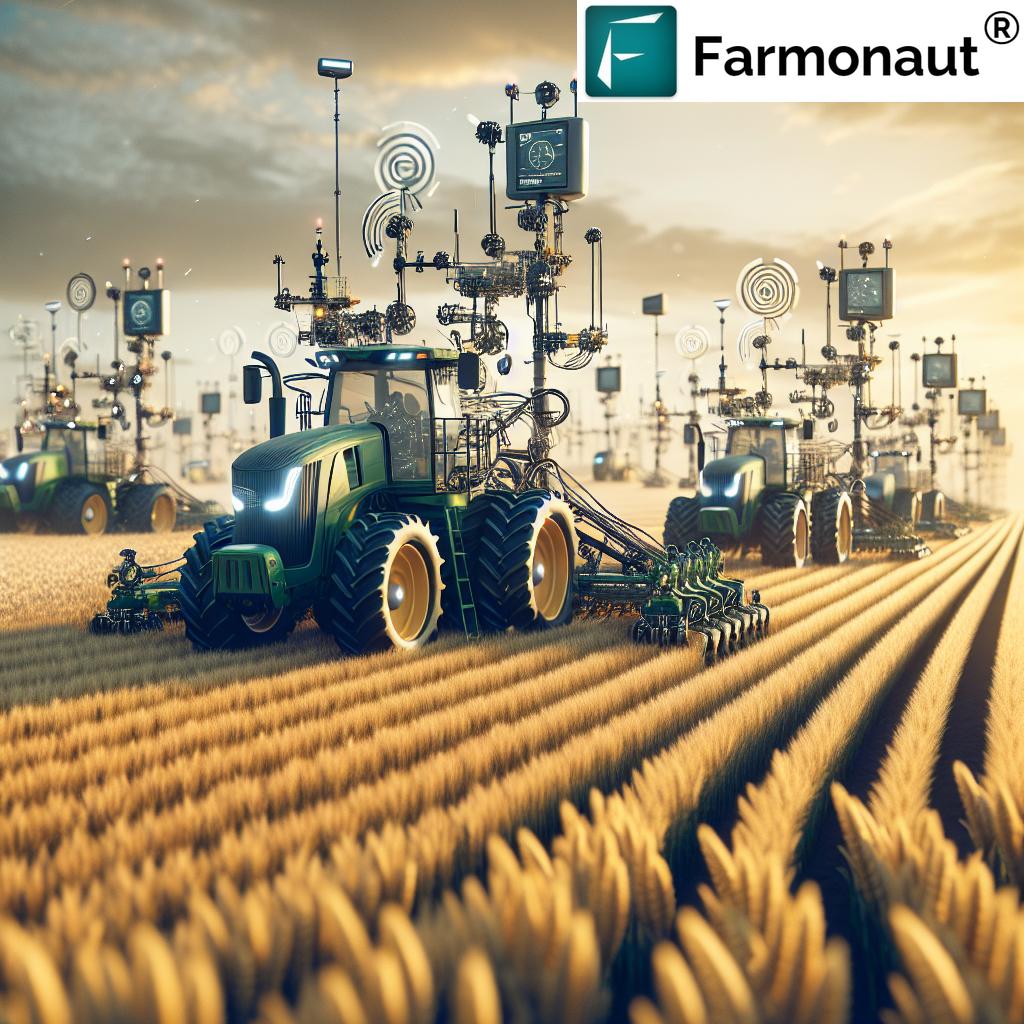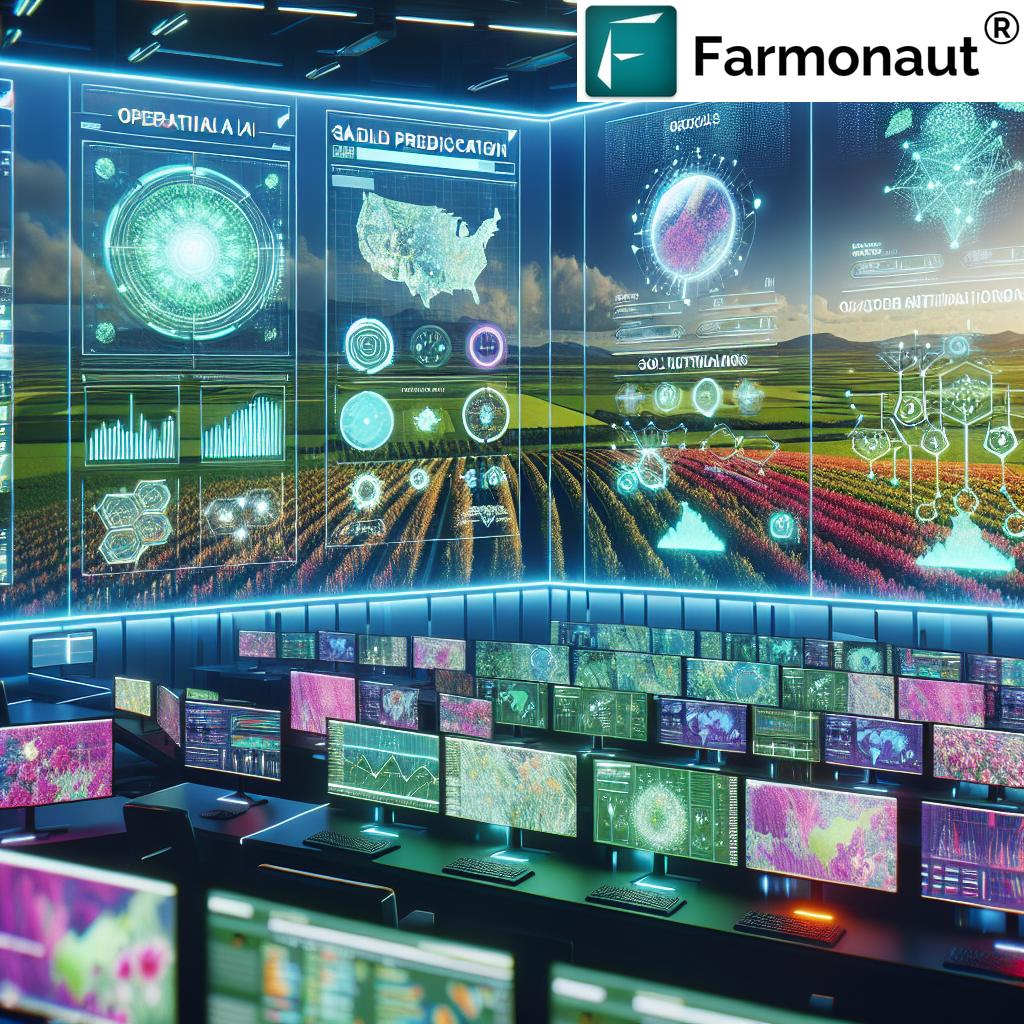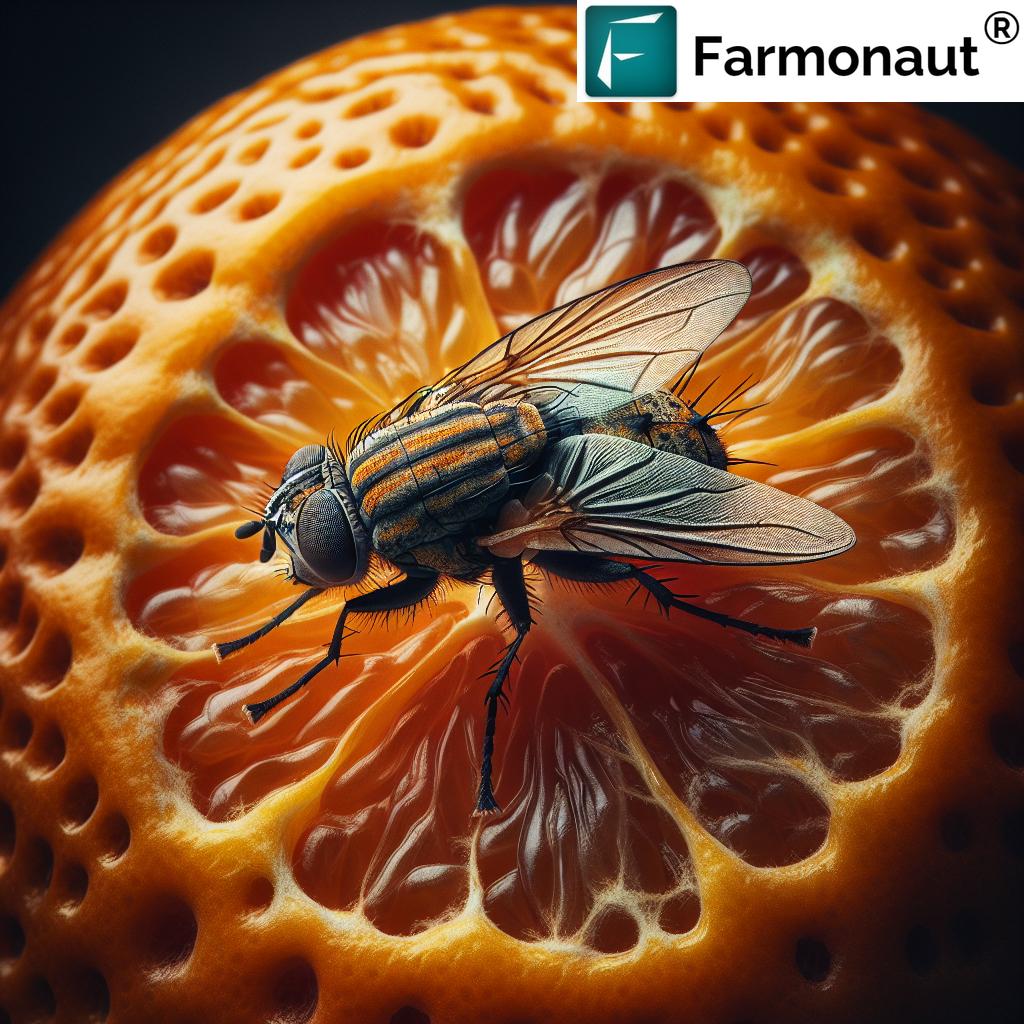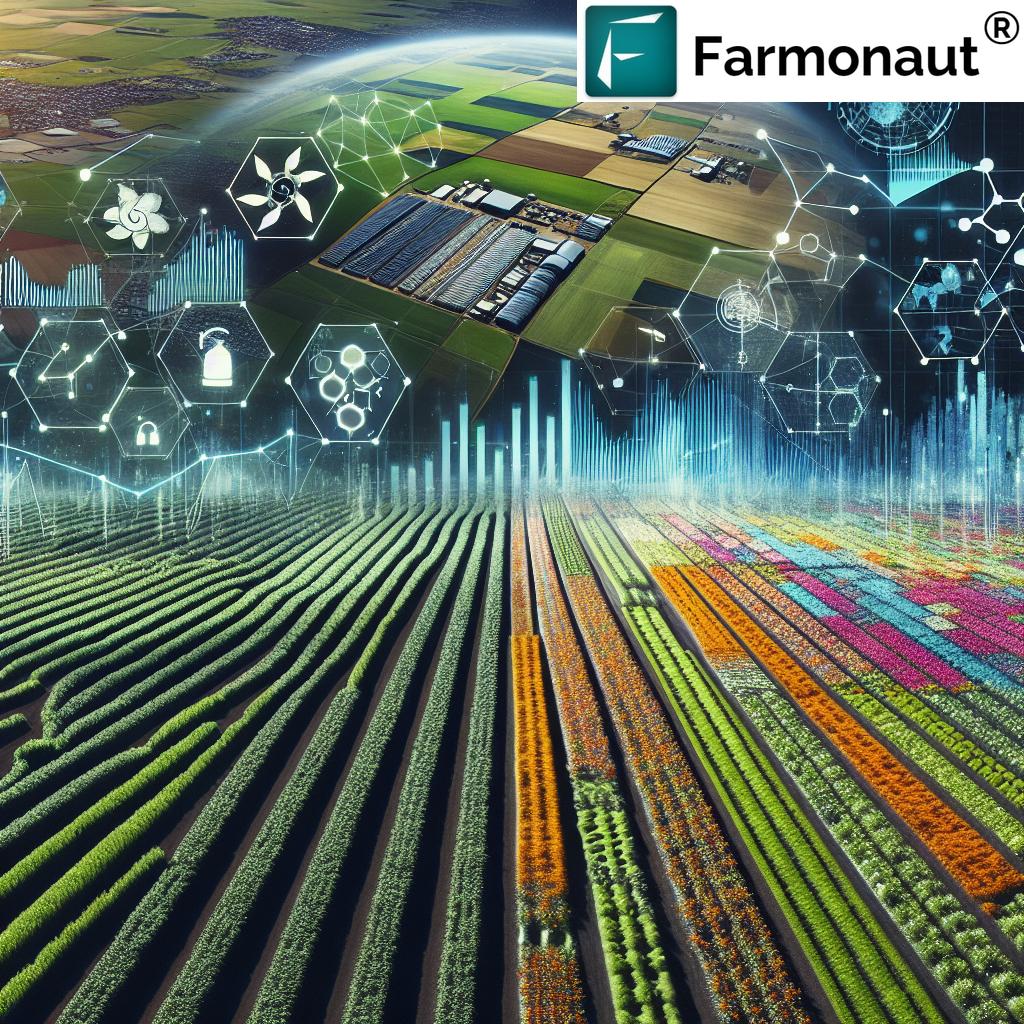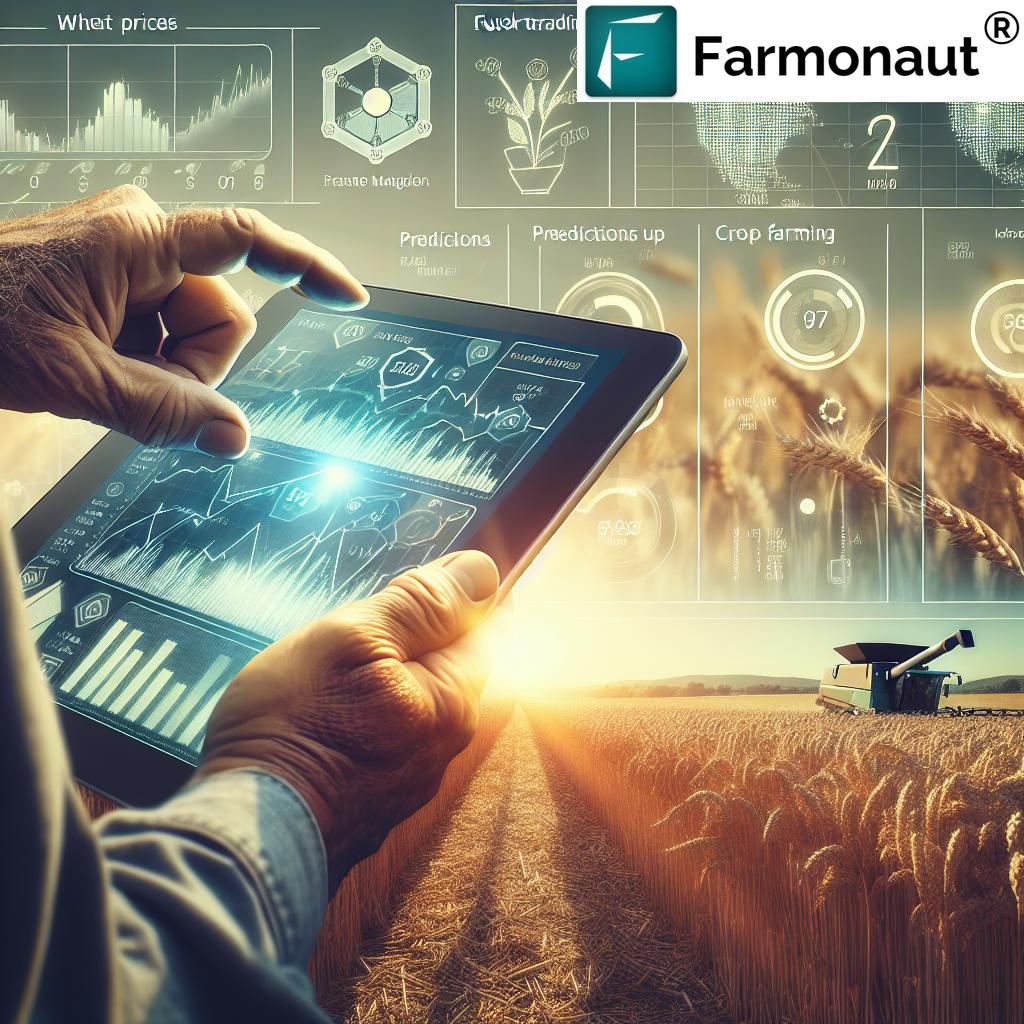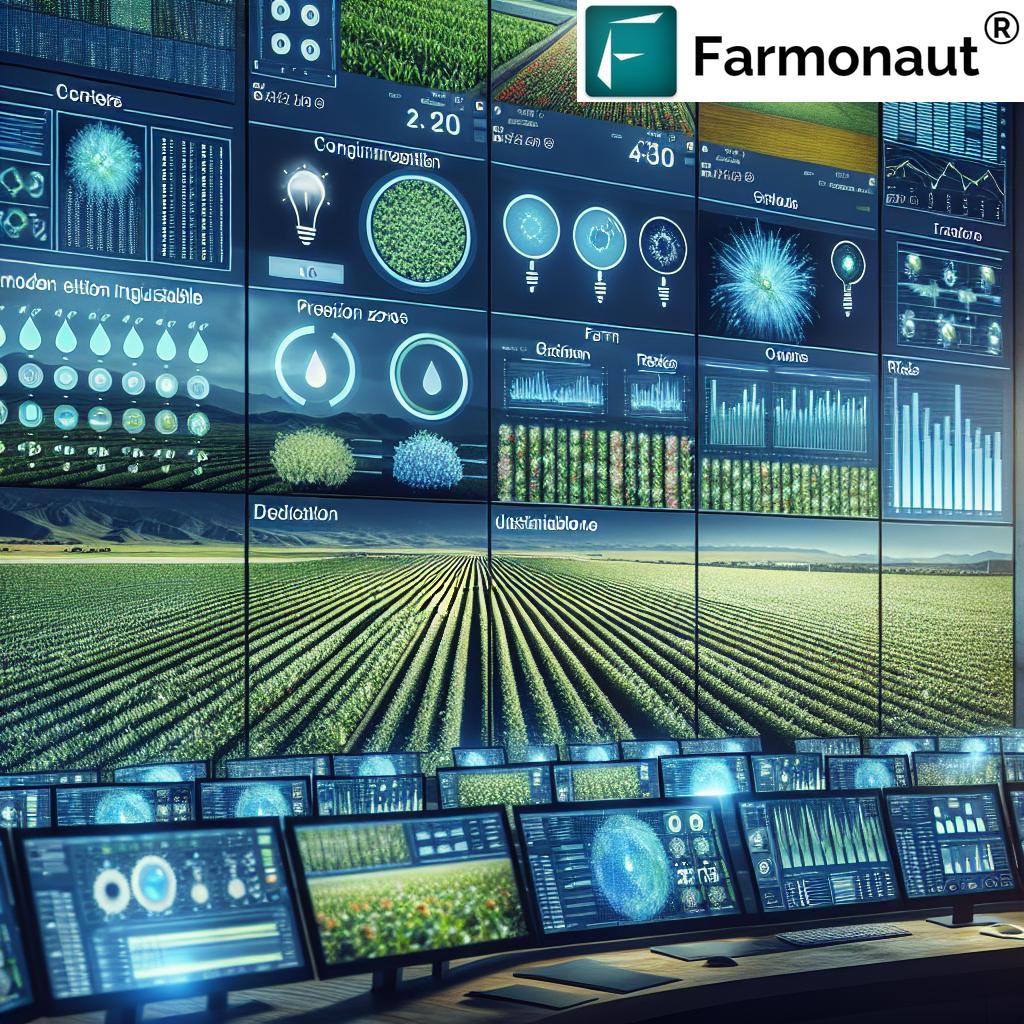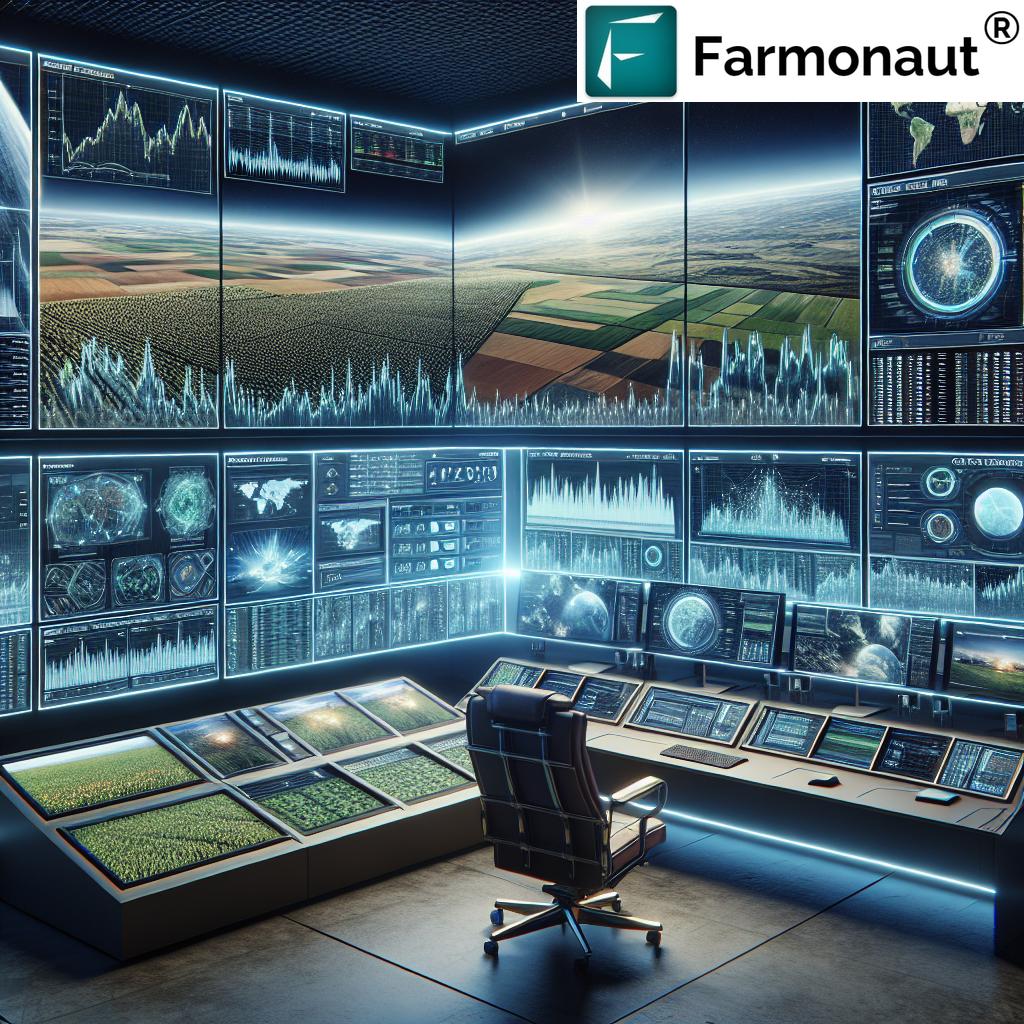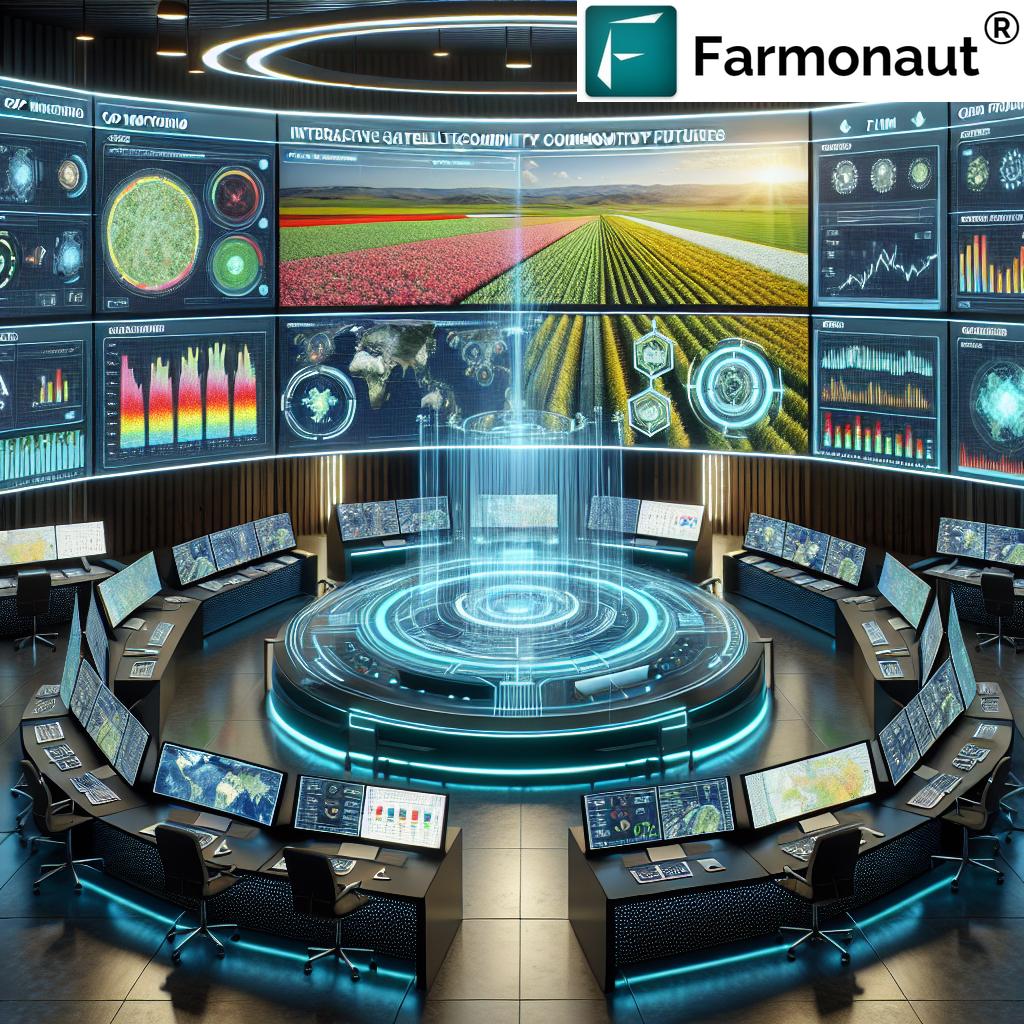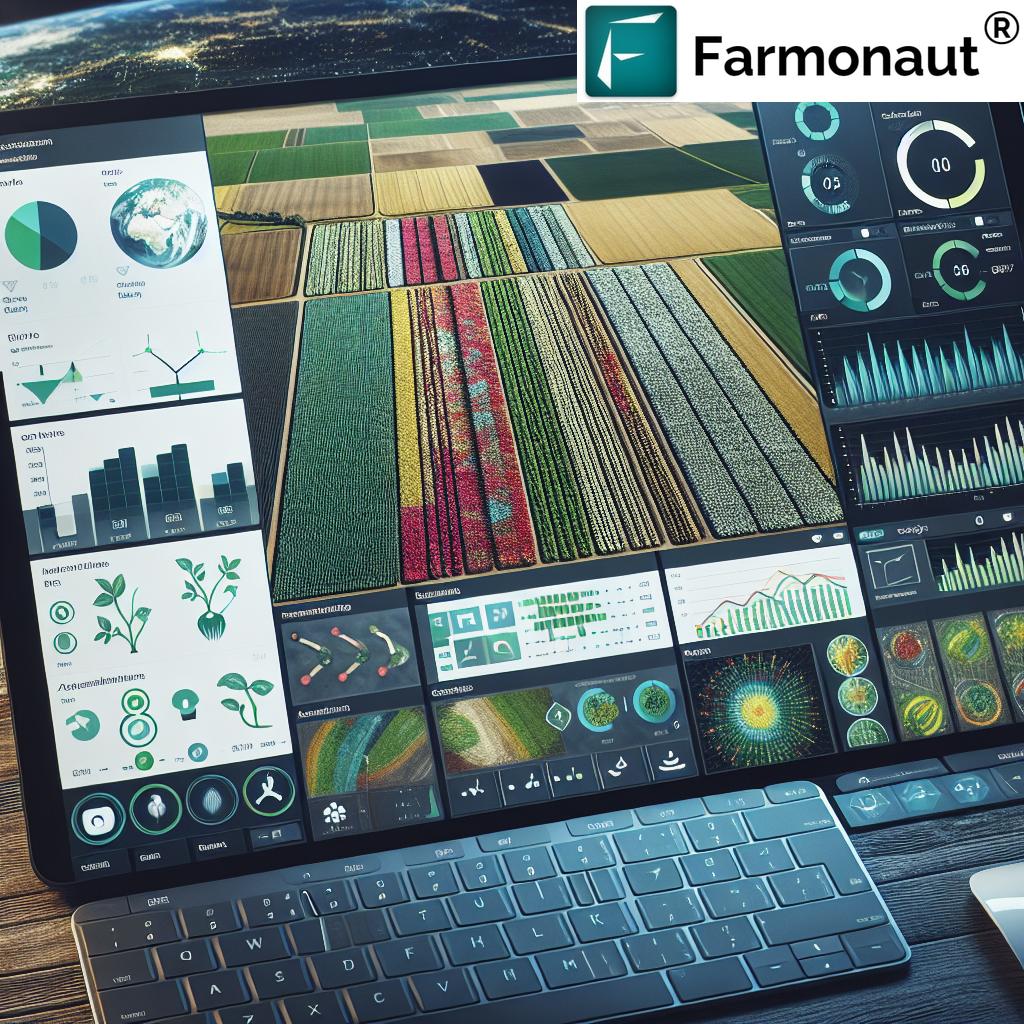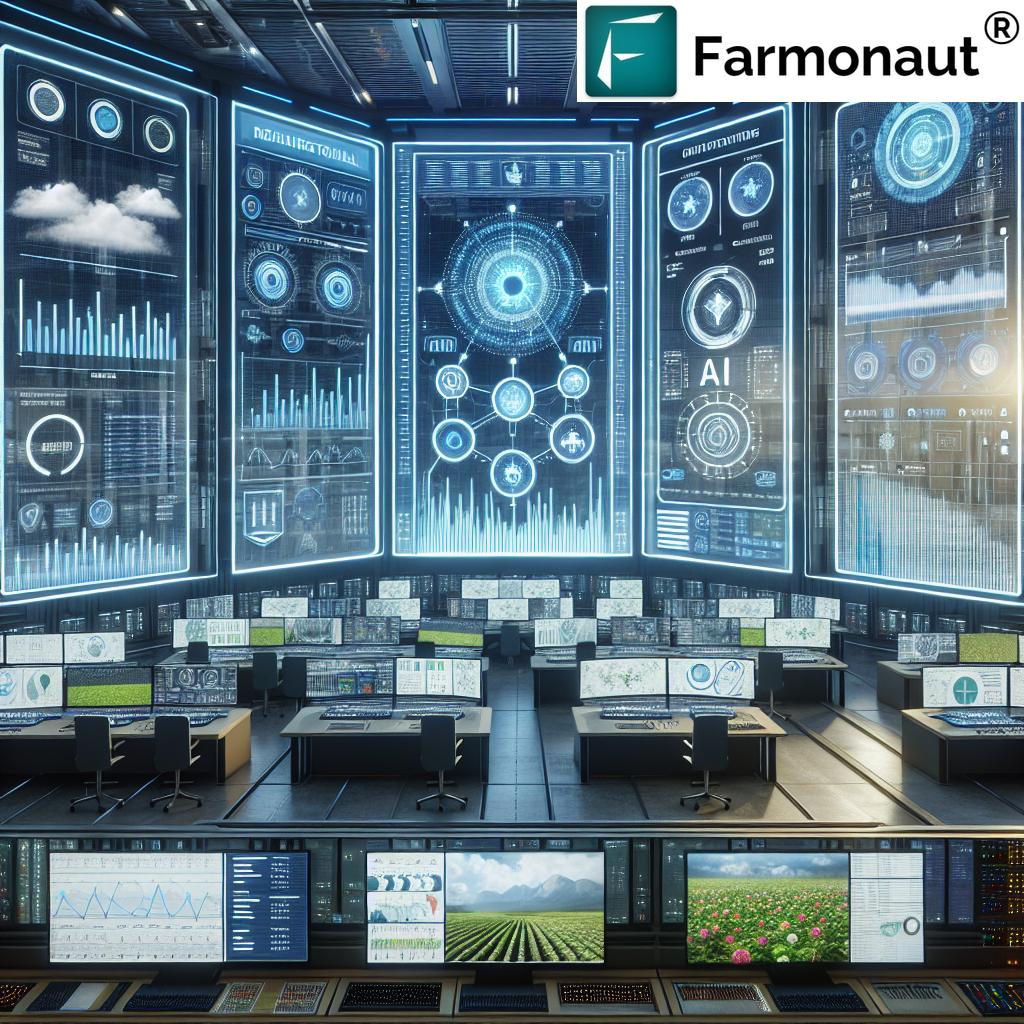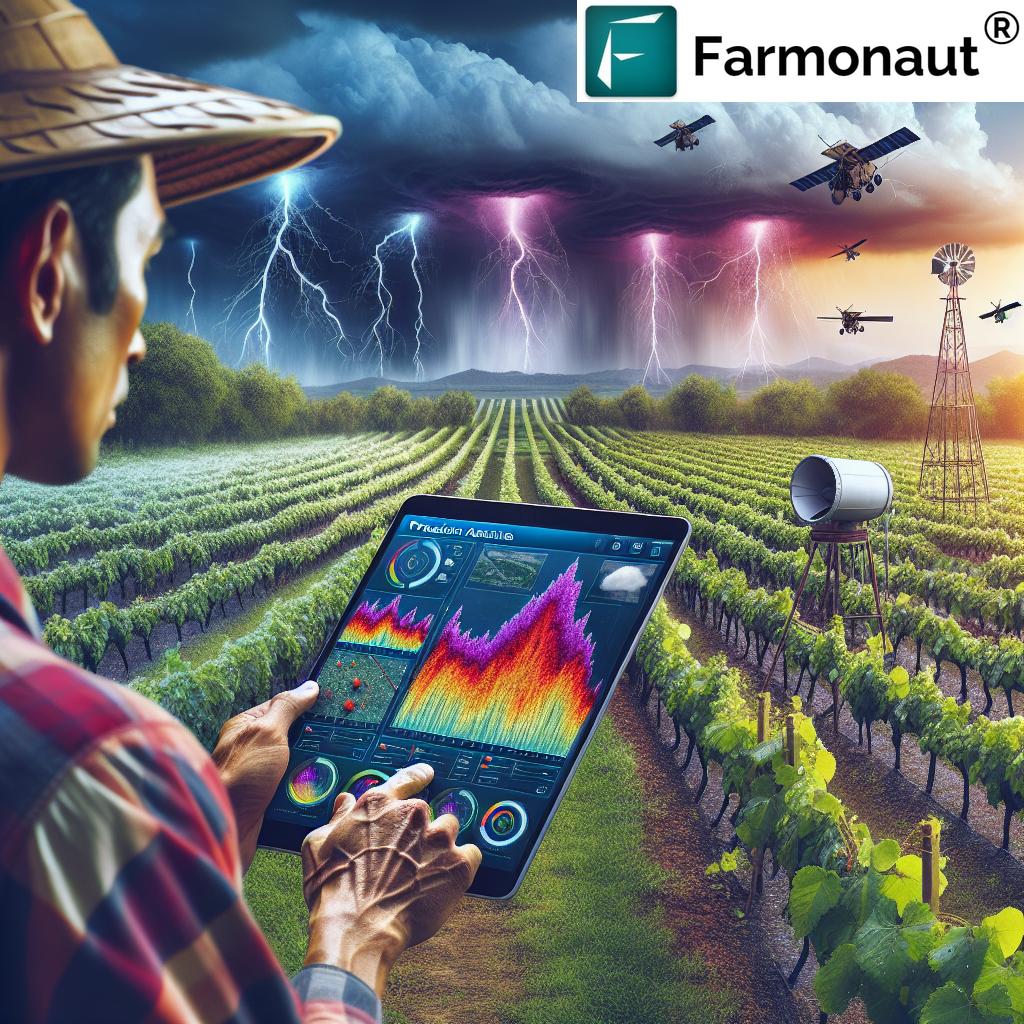AI for Farm Management: 7 Shocking Innovations Unveiled
- Introduction: Artificial Intelligence Transforming Farm Management
- AI Trivia: Surprising Stats about AI in Agriculture
- Why AI for Farm Management is Revolutionizing Agriculture
- The 7 Shocking Innovations in AI for Farm Management
- Comparative Impact Table on AI Innovations in Farm Management
- Transformative Benefits of AI in Farm Management Systems
- Challenges in Adopting AI for Farm Management
- Farmonaut: Making AI Precision Agriculture Accessible
- The Future of AI in Agriculture & Farm Management
- FAQ: AI in Agriculture & Farm Management
- Farmonaut Subscription Plans
- Conclusion: Embracing the AI Revolution in Agriculture
Introduction: Artificial Intelligence Transforming Farm Management
Artificial Intelligence (AI) is revolutionizing farm management by introducing innovative solutions that enhance efficiency, productivity, and sustainability in agriculture. In today’s rapidly evolving agricultural landscape, AI for farm management is more than a technological buzzword—it’s a necessity for global food security and climate-resilient agriculture.
With populations rising, climate change increasing unpredictability in weather patterns, and labor shortages affecting rural areas worldwide, AI-powered systems offer the tools we need to make data-driven farming decisions. From precision planting, smart irrigation solutions, and crop monitoring to disease detection, autonomous machinery, and blockchain-based traceability, AI is reshaping how farmers operate, optimize their yields, and secure their livelihoods.
In this comprehensive guide, we’ll unveil 7 shocking innovations in AI for farm management, explore their impact on the agricultural ecosystem, and highlight how platforms like Farmonaut are making these advanced technologies accessible to everyone—from smallholder farmers to large agribusinesses and governments.
Why AI for Farm Management is Revolutionizing Agriculture
As we embrace the era of precision farming technologies, integrating artificial intelligence for farmers provides substantial benefits, including:
- Increased Efficiency: Automation of repetitive tasks, reducing manual labor requirements and operational costs.
- Data-Driven Decision Making: AI systems analyze massive datasets from satellites, sensors, drones, and weather models, assisting farmers in making informed decisions.
- Optimized Resource Use: Targeted irrigation, fertilizer, and pesticide application help conserve resources and minimize environmental impact.
- Risk Mitigation: AI algorithms can predict and warn about adverse weather patterns, pest outbreaks, and disease risks.
- Enhanced Sustainability: Smart, AI-powered crop monitoring and management lead to sustainable yield improvements and improved soil health.
The 7 Shocking Innovations in AI for Farm Management
Let’s explore the 7 most groundbreaking AI applications propelling the transformation of modern farming, driving increased productivity, and supporting sustainable agricultural practices.
1. Precision Agriculture with AI
AI is at the core of precision agriculture, a technology-driven approach that enables farmers to tailor crop management to variability in soil health, nutrient needs, and environmental conditions.
How does it work? Using satellites, sensors, and drones, AI-powered systems collect and analyze real-time data on:
- Soil moisture, nutrient, and pH levels
- Vegetation health (via indices like NDVI)
- Crop growth patterns and stress indicators
- Local weather and forecasted climate patterns
- Pest and disease presence
Sophisticated AI models process this data, assisting farmers in making data-driven decisions about optimal planting times, harvest schedules, irrigation plans, and crop selection. By delivering targeted recommendations, AI maximizes yields, reduces costs, and aids resilient food production.
Platforms like Farmonaut exemplify this approach using multispectral satellite imagery for crop health monitoring. Their technologies enable affordable, scalable, and highly accurate AI farm management systems accessible via Android, iOS, and web apps—breaking traditional barriers to precision agriculture adoption.
Key Focus Keywords: AI in agriculture, precision farming technologies, crop monitoring and disease detection, data-driven farming decisions, climate-resilient agriculture
2. Autonomous Agricultural Machinery
Autonomous tractors, drones, and harvesters are rapidly changing the landscape of farm operations. These AI-integrated machines perform complex agricultural tasks with minimal human intervention.
- Tractors & Harvesters: Robots guided by advanced algorithms map farms, automate planting, monitor crop rows, and harvest with precision. This reduces labor dependency and fatigue while optimizing efficiency.
- Drones: Equipped with cameras and AI-based image-analysis, drones survey fields, collect data, and administer treatments to precisely targeted crop areas.
With real-time data analysis and automated task scheduling, these machines boost productivity, help address labor shortages, and can operate day and night—transforming both large-scale agribusinesses and smaller operations globally.
Explore how Farmonaut delivers up-to-date field boundary mapping, satellite-derived field data, and weather intelligence on autonomous machinery outputs. Their Fleet & Resource Management system also provides agribusinesses with the tools to manage logistics and machinery more efficiently while reducing operational costs.
3. Crop Monitoring and Disease Detection
Arguably one of the most impactful AI use cases, automated crop monitoring and early disease detection allow for proactive pest control and improved food security.
- AI-powered image recognition and computer vision systems inspect high-resolution images from satellites, drones, or field sensors.
- By analyzing and detecting early signs of diseases, nutrient deficiencies, or pest infestations, the systems enable timely intervention.
- This not only reduces yield loss but also allows for smarter, targeted pesticide application, minimizing environmental impact.
AI-enabled platforms can now identify specific diseases with up to 95% accuracy (such as apple scab, leaf blight, or fungal wilts), empowering farmers to act before irreversible crop loss.
With AI-based advisory systems like Farmonaut’s Jeevn AI, farmers receive actionable crop health alerts and management advice based on real-time satellite data. This optimizes yield while reducing resource wastage and ensuring sustainable growth (Learn more).
4. Smart Irrigation Solutions
Managing water use has long been one of the most critical challenges in agriculture, particularly in climate-stressed and water-scarce regions. AI-powered smart irrigation systems integrate various data streams:
- Weather forecasts and local real-time weather data
- Soil moisture maps from satellite and sensor data (as provided by Farmonaut)
- Crop growth stages and plant hydration needs
These AI-driven irrigation controllers automatically adjust watering schedules and volumes, ensuring crops are neither underwatered nor overwatered. By conserving water and reducing costs, smart irrigation solutions are indispensable for climate-resilient agriculture.
Platforms such as Farmonaut make these advanced irrigation tactics accessible by analyzing satellite-based soil moisture alongside weather predictions, reducing environmental impact and ensuring sustainable yields.
5. AI-driven Livestock Monitoring
AI isn’t limited to crop farming. Livestock management also reaps significant benefits through sensor-based health monitoring.
- Wearable biosensors and advanced image recognition systems continuously track animal vitals, movement patterns, and feeding behaviors.
- Early warning alerts are triggered by AI models detecting anomalies indicating illness, stress, or suboptimal living conditions.
- This allows for prompt veterinary interventions, reduces disease spread, and boosts overall herd productivity and resource optimization.
By ensuring animal well-being and automating data collection across vast herds, AI-driven livestock monitoring makes modern farm management more sustainable, ethical, and cost-effective.
6. Blockchain-based Product Traceability
As consumers demand transparency, traceability in agriculture is vital. Integrating blockchain with AI delivers full tracking of products from farm to fork.
- Each transaction or harvest record is stored on a secure, tamper-proof digital ledger.
- Data includes planting and harvesting dates, pesticide and fertilizer use, transport logistics, and processing details.
- This reduces fraud, meets regulatory compliance, and builds consumer trust, especially for contract agriculture and food companies.
Farmonaut offers product traceability solutions using blockchain coupled with real-time satellite and weather data, ensuring the integrity of supply chains.
7. Carbon Footprinting for Sustainable Practices
With sustainability at the forefront of global agricultural policies, carbon footprinting tools—driven by AI and real-time satellite data—help:
- Quantify emissions generated from field operations
- Identify strategies to mitigate carbon output and improve soil carbon sequestration
- Demonstrate compliance with environmental standards and support eligibility for carbon credits
Farmonaut’s Carbon Footprinting platform delivers actionable insights for climate-resilient agriculture—empowering farmers and agribusinesses to lower emissions and enhance their environmental stewardship.
Comparative Impact Table on AI Innovations in Farm Management
| Innovation Name | Main Application | Estimated Yield Improvement (%) | Estimated Cost Reduction (%) | Adoption Rate (Est.) | Environmental Impact |
|---|---|---|---|---|---|
| Precision Agriculture with AI | Optimized input use, targeted crop management | 15–30% | 12–25% | Rapidly growing (40–50% in large farms) | High |
| Autonomous Machinery | Automated planting, harvesting, spraying | 10–20% | 20–35% | Moderate (25–30%) | Medium–High |
| Crop Monitoring & Disease Detection | Early detection, targeted pest control | 7–15% | 10–20% | High (>60% tech-enabled farms) | High |
| Smart Irrigation Solutions | Water management, optimized irrigation | 8–16% | 20–40% | Growing (40% in arid regions) | High |
| AI-driven Livestock Monitoring | Animal health management | 6–14% | 10–22% | Expanding (15–20%) | Medium |
| Blockchain Traceability | Product tracking, supply chain transparency | 4–12% | 8–18% | Emergent | Medium–High |
| Carbon Footprinting | Sustainability assessment | 5–9% | 6–15% | Growing (sustainability-focused farms) | High |
Transformative Benefits of AI in Farm Management Systems
Let’s break down the real-world benefits of AI in agriculture for smallholder and commercial farmers alike:
- Efficiency: Routine tasks like monitoring, irrigation, and crop scouting can be automated, freeing up manpower for strategic operations (see large-scale farm management tools).
- Enhanced Productivity: By leveraging data from satellites and sensors, farm productivity increases as decisions are tailored to actual field conditions, not guesswork.
- Resource Optimization: AI systems minimize waste of water, fertilizer, and pesticides, maximizing the impact of every dollar and minimizing ecological harm (Precisely monitor resources with Fleet Management Solutions).
- Risk Mitigation: Forecasts powered by AI and weather models allow pre-emptive action against floods, droughts, pests, and diseases.
- Data Transparency: Blockchain-based systems ensure crop traceability, verify product authenticity, and reduce fraud (see Farmonaut’s Traceability Platform).
- Sustainability: Systems offering carbon footprinting and real-time resource tracking promote environmentally friendly, climate-resilient agriculture.
- Access to Finance: With satellite-verified farm data, lenders and insurers can accurately assess risk, reducing fraud and enabling easier access to crop loans and insurance solutions.
Challenges in Adopting AI for Farm Management
While the advantages are clear, AI-based farm management systems face several hurdles:
- High Initial Investment: The upfront costs of sensors, drones, and AI-driven machines can be prohibitive—meaning affordable platforms like Farmonaut, using cloud-based and satellite solutions, are crucial to increase adoption.
- Data Security and Privacy: As vast field and personal data are generated, securing that information and addressing privacy concerns is critical. The use of blockchain helps ensure data integrity.
- Technical Expertise: The need for education and training for rural farmers can slow the uptake of new systems. Accessible apps with user-friendly dashboards, like those offered by Farmonaut, help bridge this gap.
- Infrastructure Limitations: In regions with limited internet connectivity or unstable power supply, cloud-based services and offline-capable apps are needed for widespread adoption.
- Resistance to Change: Cultural and generational resistance is best addressed with on-farm demonstrations, ongoing training, and clear communication of AI’s tangible benefits.
By addressing these barriers, we can unlock the full potential of AI for sustainable farming worldwide.
Farmonaut: Making AI Precision Agriculture Accessible
At Farmonaut, our mission is to bring advanced, satellite-based farm management solutions to farmers and agribusinesses globally. Here’s how we’re leading the AI revolution in agriculture:
- Satellite-Based Crop Health Monitoring: Monitor vegetation health (NDVI), soil moisture, and growth anomalies with high-frequency multispectral images accessible via web, Android, or iOS.
- Jeevn AI Advisory System: Receive personalized, actionable recommendations, field-specific weather forecasts, and real-time crop management strategies—all powered by AI and machine learning.
- Blockchain Traceability: Ensure every farm product’s origin, handling, and route is transparent and secure, fostering trust in domestic and export markets.
- Fleet & Resource Management: Manage your machinery, logistics, and labor fleet for optimum efficiency and safety.
- Carbon Footprinting: Real-time assessment of your environmental impact, with guidance on reducing your carbon footprint—enabling sustainable practices and compliance.
We operate a flexible subscription-based model, making access affordable for everyone—from smallholder farmers to large-scale operators, government bodies, and agritech developers (integrate Farmonaut’s data via our API; see our developer docs).
The Future of AI in Agriculture & Farm Management
The future of AI-driven agriculture is promising, as continuous advancements are making AI farm management systems more accurate, affordable, and accessible.
- Inclusive Access: We must ensure that smallholder farmers in rural areas have access to these life-changing tools.
- Policy and Investment: Supportive government policies, grants, and private investments will further accelerate the adoption of AI for sustainable farming.
- Continuous Learning: Ongoing farmer education, training, and capacity-building will cement AI as the new normal in agriculture, fostering resilience, profitability, and environmental stewardship in every corner of the world.
- Integrative Platforms: Solutions that combine satellite imagery, AI, machine learning, blockchain, and IoT sensors (as offered by Farmonaut) will underpin tomorrow’s food security.
As global food demands rise and climate change puts pressure on existing systems, AI’s role in enabling robust, data-driven farm management will only deepen.
FAQ: AI in Agriculture & Farm Management
What is AI in agriculture?
AI in agriculture refers to the application of artificial intelligence technologies—like machine learning, computer vision, and big data analytics—to farming operations. These technologies automate processes, guide data-driven decisions, and optimize resource use in crop and livestock management.
How does AI improve farm management?
AI improves farm management by analyzing vast data from satellites, sensors, and machines. This leads to more accurate predictions, timely interventions for pests and diseases, optimized irrigation, and better resource allocation—resulting in higher yields and improved profitability.
Are AI technologies affordable for smallholder farmers?
Yes. Innovative platforms like Farmonaut democratize access by using satellite imagery and AI instead of large investments in on-field hardware, making precision agriculture affordable for all.
What’s the role of blockchain in farm management?
Blockchain provides secure, transparent records throughout the agricultural supply chain, ensuring traceability, meeting regulatory standards, and fostering trust with buyers and consumers.
How can I start using AI-powered farm management?
Sign up for a precision agriculture platform like Farmonaut via web or mobile app. Upload your field details to start monitoring crop health, tracking inputs, and receiving personalized advisories instantly.
Farmonaut Subscription Plans
Experience the real benefits of AI in agriculture with flexible, scalable plans tailored for single farms, agribusinesses, cooperatives, and large organizations:
Conclusion: Embracing the AI Revolution in Agriculture
Artificial Intelligence is not just a technological innovation—it’s the backbone of future-ready, sustainable, and resilient farm management. With AI farm management systems, precision agriculture, blockchain-based traceability, and automated machinery, we can boost global food security, mitigate climate change, and empower every farmer to thrive.
The journey to smarter farming starts now. Harness the power of Farmonaut and join a new era of data-driven, efficient, and sustainable crop management.
Ready to unlock higher yields and sustainable profit? Start your journey with Farmonaut and transform the way you manage your fields forever.





